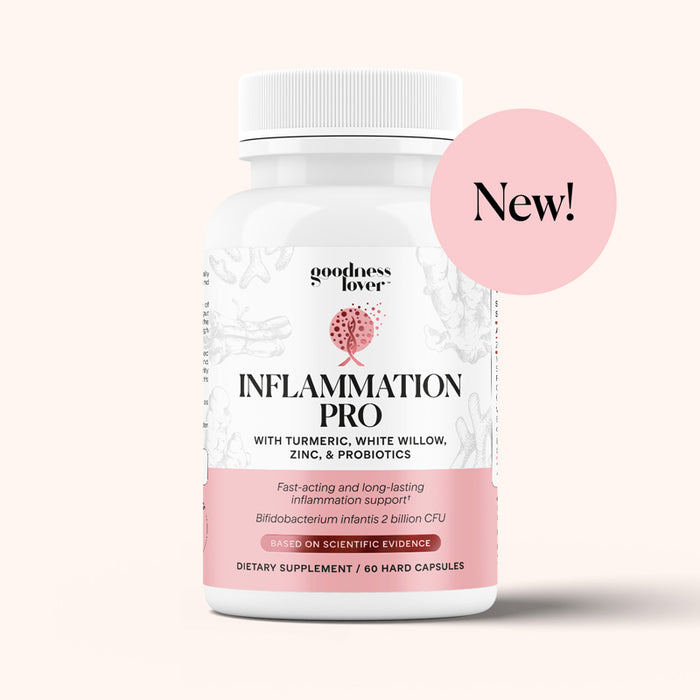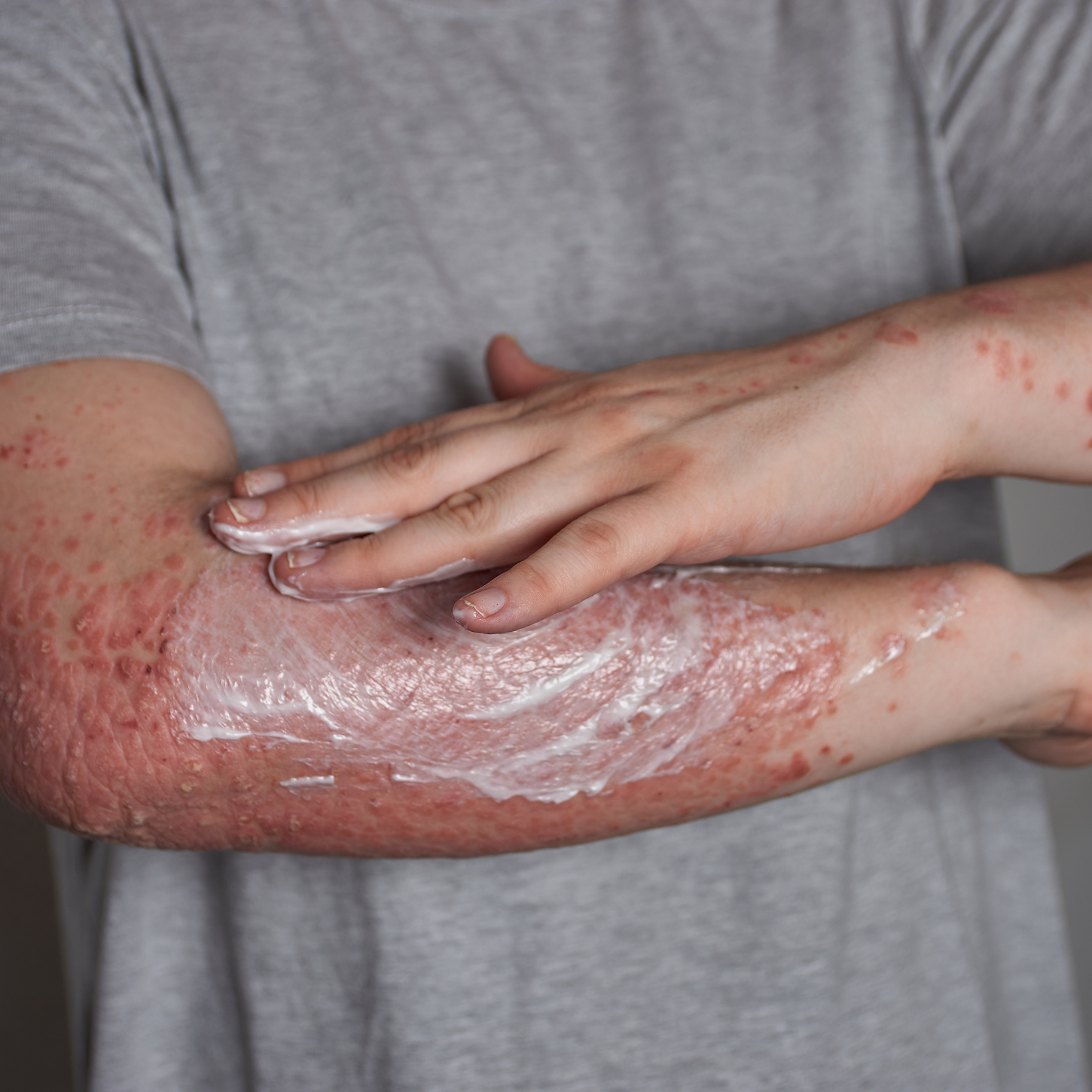If you’ve been battling stubborn, scaly patches of psoriasis, you’re probably all too familiar with the endless cycle of flare-ups, frustration, and fleeting relief. You’ve tried the creams, the ointments, maybe even prescription medications—yet the problem persists. But what if the real solution isn’t just skin deep?
New research is shedding light on a powerful but often overlooked factor in psoriasis: your gut health. Scientists now recognize that psoriasis isn’t just a skin condition—it’s an autoimmune disorder rooted in systemic inflammation, which is largely influenced by the complex world of your digestive system.
In this blog, we’ll go beyond the surface and explore psoriasis from the inside out. You’ll learn what psoriasis really is, what triggers it, how conventional treatments often fall short, and most importantly, why addressing your gut health could be the missing piece of the puzzle. By understanding this hidden connection, you can take meaningful steps toward lasting relief—without relying solely on band-aid solutions.
Let’s dive in.
Table Of Contents:
What is psoriasis?
Psoriasis isn’t just another skin condition; it’s a multifaceted autoimmune disorder with deep systemic roots. Think of it as the Rubik’s Cube of dermatology—complex, frustrating, and often misunderstood.
At its core, psoriasis is characterized by the rapid overproduction of skin cells. Normally, the body maintains a balance between cell growth and shedding, but psoriasis throws this process into overdrive, leading to the excessive buildup of skin cells that form those characteristic scaly patches. These patches commonly appear on the elbows, knees, scalp, and lower back, but they can develop anywhere on the body.
Globally, psoriasis affects about 2-3% of the population—approximately 125 million people. It can appear at any age but typically manifests in early adulthood or later in life. Equally prevalent in men and women, its severity ranges from mild to debilitating. Psoriasis is also linked to other health conditions, including arthritis, inflammatory bowel disease, cardiovascular disease, and depression.
Common Symptoms of Psoriasis:
-
Red patches of skin covered with thick, silvery scales
-
Dry, cracked skin that may itch or burn
-
Thickened, ridged nails
-
Swollen, stiff joints
-
Small scaling spots
-
Painful lesions
Psoriasis symptoms often cycle between flare-ups and periods of remission, with triggers including stress, infections, medications, skin injuries, and environmental factors.

The Root Causes of Psoriasis
Psoriasis isn’t just about what’s happening on your skin—it’s a reflection of deeper imbalances within your body. It’s like an iceberg - what you see on the surface is just the tip of a much larger issue brewing beneath. Or, to put it another way, think of it as a warning light on your car’s dashboard—the issue isn’t the light itself, but what’s going on under the hood.
While the exact cause of psoriasis remains a mystery, researchers know it’s driven by three key factors: genetics, environmental triggers, and an overactive immune system. If psoriasis runs in your family, you may have a genetic predisposition, but that alone isn’t enough to cause it. It often takes external triggers—like stress, infections, or gut imbalances—to push the immune system into overdrive.
In people with psoriasis, the immune system mistakenly sees healthy skin cells as a threat and launches an attack, causing inflammation and rapid skin cell turnover.
It's your immune system gone rogue, attacking your own skin cells as if they were unwelcome invaders, leading to the buildup of scaly patches, itching, and discomfort.
The Role of the Gut-Skin Connection
Now, what if I told you that this immune system mutiny might be orchestrated by an unlikely conductor—your gut?
Enter the gut-skin axis. This isn’t just a trendy theory; it’s backed by science. Your gut and skin are in constant communication, and when your gut isn’t happy, your skin is often the first to sound the alarm.
How does this connection work? It boils down to three key players:
-
Your microbiome – Your gut is home to trillions of bacteria, both beneficial and harmful. When an imbalance (dysbiosis) occurs, it sets off a chain reaction of inflammation throughout your body, including your skin.
-
Leaky gut – Imagine your intestinal lining as a fine mesh. In a healthy gut, it allows only tiny nutrients to pass through. But when it becomes overly permeable, larger particles escape, triggering an immune response that can exacerbate psoriasis. Recent studies have shown that people with psoriasis are more likely to have increased intestinal permeability - a.k.a. leaky gut. Coincidence? I think not!
-
Chronic inflammation – An overactive immune system leads to systemic inflammation, and guess what? Psoriasis thrives on inflammation like a fire feeds on oxygen.
Now, chronic inflammation doesn’t just make psoriasis worse—it sets the stage for a full-body flare-up, making symptoms more severe and persistent. This widespread inflammation is often fuelled by things like an unhealthy diet, gut imbalances, chronic stress, and toxins in the environment.
At the centre of it all are inflammatory molecules called cytokines, which keep sending distress signals to the immune system, causing it to stay in attack mode. This constant overdrive further accelerates skin cell turnover characteristic of psoriasis.
But it doesn’t stop there—unchecked inflammation can also raise the risk of serious conditions like heart disease and metabolic disorders. That’s why tackling inflammation at its source is key to long-term relief.
Environmental triggers
Various environmental factors can worsen psoriasis, including:
-
Infections and skin injuries
-
Gut dysbiosis
-
Diets high in red meat, simple sugars, and unhealthy fats
-
Certain medications such as beta blockers, lithium and even NSAIDs
Lifestyle choices such as smoking and heavy alcohol consumption are also linked to increased psoriasis severity.
The Vicious Cycle: Stress, Gut, and Skin
Let’s talk more about stress because those with psoriasis know stress is a big deal when it comes to the state of their skin.
Stress and psoriasis have a tangled relationship, and your gut is caught in the middle. When you're stressed, your body releases hormones that can disrupt your gut microbiome, weaken your intestinal barrier, and fuel inflammation—all of which can set off or worsen psoriasis.
On the flip side, dealing with psoriasis itself can be stressful, creating a feedback loop that keeps the cycle going. It's a chicken-and-egg situation: Does the stress cause the leaky gut, which then triggers psoriasis? Or does psoriasis cause stress, which then impacts gut health? The answer is... both!
This vicious cycle can feel overwhelming, but here's the silver lining: your gut is one of the most powerful levers you can pull to break free from this cycle. By supporting gut health, you can calm inflammation, strengthen your skin’s defences, and even build greater resilience to stress—helping you take control of your psoriasis from the inside out.
Conventional Treatment
If you’ve been diagnosed with psoriasis, chances are your doctor has given you the standard treatment options—ones that focus on managing symptoms rather than addressing what’s actually causing the problem. You’ve probably heard something like this:
-
"Here, try this cream." Corticosteroids, vitamin D analogues, and retinoids can help for a while, but over time, they can thin your skin, cause irritation, and stop working altogether.
-
"Light therapy might help." UVB phototherapy or PUVA (psoralen plus UVA) can slow down skin cell growth, but the trade-off? Increased risk of burns, premature aging, and even skin cancer with long-term use. Plus, due to limited treatment centers and the need for frequent visits, this option is very inconvenient.
-
"If it gets worse, we have stronger medications." Systemic drugs like methotrexate or biologics are often prescribed for severe cases. They work by suppressing your immune system, which may calm your skin but also makes you more vulnerable to infections, liver damage, and other serious side effects.
Sound familiar? The problem with these treatments is that they’re like putting a bucket under a leaking roof—it might catch the water, but it doesn’t stop the leak. And that leak? It could be coming from your gut.
What’s Next? Healing from the Inside Out
The good news is there’s a different way. One that focuses on healing from the inside out. Because real healing isn’t just about managing symptoms—it’s about finding the root cause and fixing it for good.
In our next blog post, we’ll explore practical, natural strategies to restore gut health and, in turn, calm your skin. From diet tweaks that can make a world of difference, to lifestyle changes that support both gut and skin health, we'll explore evidence-based approaches that go beyond just treating the symptoms. We'll look at foods that can be your skin's best friend (and worst enemy), supplements that support gut healing, and lifestyle practices that can help restore balance to both your digestive system and your skin.
Remember, when you heal from the inside out, you're not just working toward clearer skin—you’re setting the foundation for lifelong wellness. Stay tuned for part two of our psoriasis and gut health series.














What Do You Think? Comment Below: